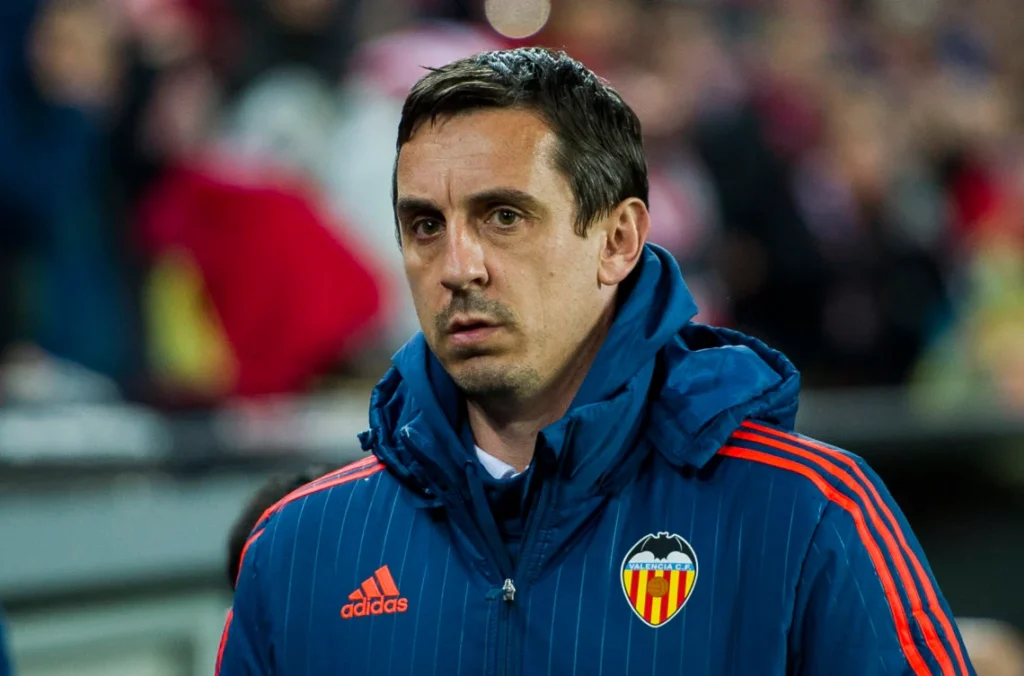Gary Neville has accused the Premier League of acting as ‘bullies’ and claims the organization is ‘entitled’ and ‘selfish’ amid the ongoing debate over the prospective establishment of an independent football regulator.
Gary Neville has accused the Premier League of acting as ‘bullies’ in the face of the Football Governance Bill, which would establish an independent football regulator under the new Labour government.
Following the European Super League fiasco in 2021, support for the establishment of an independent regulator began to grow. The recently-deposed Conservative government proposed ideas, and since taking office, Labour has pressed forward with the notion, claiming football clubs will be ‘protected’ as a result of ‘ensuring their financial survival’. If ratified by parliament, the law would provide a regulator backstop powers to interfere in football as needed.
Neville is a staunch supporter and believes its implementation will protect the interests of English football fans across the pyramid, according to our sister publication the Manchester Evening News. On the other hand, the Premier League has been reticent, with CEO Richard Masters warning that it would be a ‘risk’.
So, in comments to PA at the Labour Party Conference, the Sky Sports analyst slammed the Premier League for its reluctance. He said, “We have a Premier League that is entitled; they feel entitled. I am not going to use the word greedy, but I just did.
“They are selfish, and I cannot understand their way of thinking. It’s almost as if they’re the big brother that sits there and distributes food crumbs to the younger brothers around the table.
“This is not what you do in a family. Their mindset is that of a bully. Their thinking is such that they believe they can influence the regulator once it is established and possibly get a better deal from the other side of the regulator. And what they’re doing is using their soft power and influence to try to produce scare tales and scaremongering, as we saw a few weeks ago.”
During the independent regulator’s prospective approval, there have been allegations that clubs such as Nottingham Forest and Neville’s previous Manchester United might be excluded from participation in future UEFA competitions due to the organization’s stance against governmental meddling. At the same event, Labour’s Culture, Media, and Sport Secretary, Lisa Nandy, called the concept ‘stupid’.
Nandy also stated that the government will not take a ‘heavy-handed’ approach, emphasizing the goal to address the lack of sustainability in certain areas of the football pyramid.
The Premier League has responded to Neville’s claims of acting like a ‘bully’, noting that they are in ongoing talks with the incoming administration over the football regulator. They have argued that ‘light-touch, targeted, and proportionate laws may be made to work’, referring to CEO Masters’ comments at the close of the previous season.
He had cautioned, “My main concern is that the measure will lower our competitiveness and undermine the extraordinary attractiveness of the English game. Our tournament is the world’s most popular and commercially successful football league. Because of their success, Premier League teams are able to donate £1.6 billion to the wider game every three years, representing 16 percent of their total earnings and contributing to the game’s global reputation.
“It is a risk that regulation will undermine the Premier League’s global success, thereby wounding the goose that provides English football’s golden egg.”
In reference to other top European domestic football competitions, he added: “Those competitors are relishing the prospect of the Premier League being uniquely constrained.” Empires rise and fall, and while I am confident in the League’s immediate future, it would be a mistake to take for granted our status as the world’s most popular league.
“Introducing uncertainty and red tape into an industry that relies primarily on a limited pool of investors, who frequently consider club ownership as both a passion project and a business, is risky. While the sport is currently thriving, it is all too easy to make a mistake and redirect our world-leading funding elsewhere. Already, before it arrives, the prospect of regulatory interference in football financing has altered incentives for a new voluntary agreement to be reached.
“We have spent the last year in talks with the EFL regarding a more generous financial settlement. However, these discussions have only served to emphasize how destabilising intervention may be. The government maintains that its regulator will not intervene on the pitch, yet it is already doing so by interfering with the precisely calibrated distribution of income and disrupting competitive balance.”
